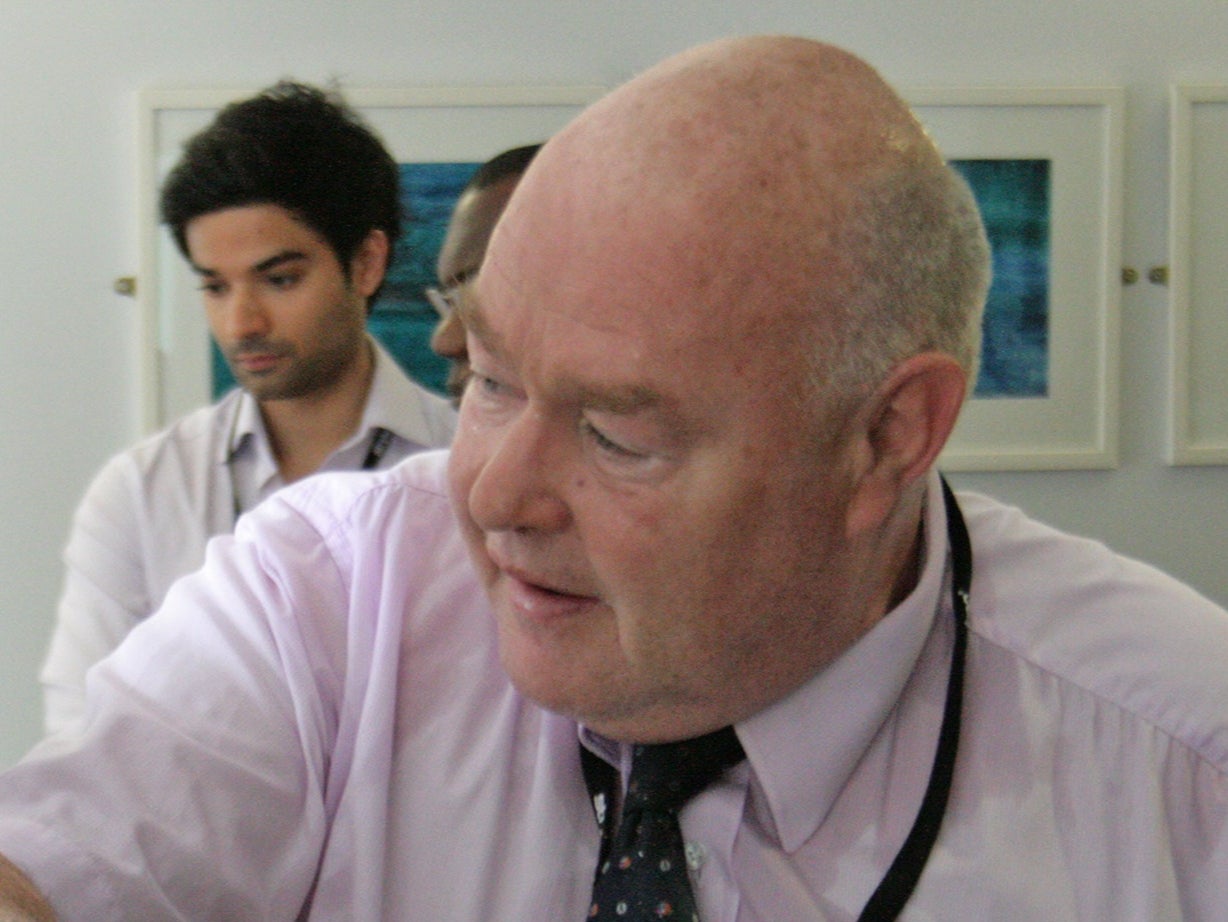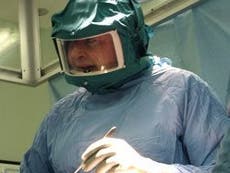This story about a surgeon allegedly hoarding thousands of body parts is a reminder of the value of research ethics
From the Tuskegee syphilis experiment to the leaked report about Derek McMinn, the problem of tunnel vision in healthcare needs to be discussed


Your support helps us to tell the story
From reproductive rights to climate change to Big Tech, The Independent is on the ground when the story is developing. Whether it's investigating the financials of Elon Musk's pro-Trump PAC or producing our latest documentary, 'The A Word', which shines a light on the American women fighting for reproductive rights, we know how important it is to parse out the facts from the messaging.
At such a critical moment in US history, we need reporters on the ground. Your donation allows us to keep sending journalists to speak to both sides of the story.
The Independent is trusted by Americans across the entire political spectrum. And unlike many other quality news outlets, we choose not to lock Americans out of our reporting and analysis with paywalls. We believe quality journalism should be available to everyone, paid for by those who can afford it.
Your support makes all the difference.What is the cost of good research? As chair of my college’s research ethics approval committee, it is a question we ask every time someone wants to do it.
Another question that must be asked when conducting research on or with people is: at what point does the benefit of research outweigh the possible and real harms of that same research? While many view the answering of this question as a tedious hoop to jump through in order to do their (very important and valuable to my mind) research, it is one that must always be answered before starting a project.
And it is an important question to ask and answer, because as the allegations against Derek McMinn, the renowned British surgeon famous for his hip resurfacing technique, could reveal, consent and research ethics can sometimes be shirked by those who view them as unnecessary, even cumbersome blocks to research. They are not. While it may be a lot of paperwork, ethical approval for research is an important check to ensure that legal and moral boundaries are not crossed in the quest for new knowledge.
This is because research is never without risk, and good ethical research builds in mechanisms to mitigate this risk as much as possible. The chief way this is done is through ensuring informed, written consent is given by research participants who are best placed to decide what level of harm and risk they themselves are willing to bear.
Participants must make this decision for themselves, because we really do not have a great track record of doing the right, ethical thing when it comes to human participant research. The far-too-close-for-comfort, not-so-distant-past reveals true horrors in the name of science and medical advancement. Namely, research that was done in an effort to improve lives, but without important checks and balances to ensure participants were aware of and protected from unnecessary harm.
The Tuskegee syphilis experiment is one such example. Beginning in 1932, it was a programme of research where predominantly white scientists studied a group of black men infected with syphilis to understand the full life-cycle of the disease. The men were told that they were being studied on the effects of bad blood, and no informed consent was taken. Initially conceived as a project to help justify better healthcare for these men, when it was discovered that penicillin could successfully treat syphilis, participants were kept from and even denied access to it, so as to ensure that the data would be complete. All in the name of research. Research that was allowed to continue until the 1970s, long after the Nuremberg Code had enshrined global protection of research participants, developed in response to human experimentation by Nazis that does not bear repeating.
As I said, when it comes to research, we have a very bad history of understanding which lines not to cross.
If McMinn failed to recognise his research was crossing a line, it also speaks to a very real, very modern and very persistent problem in healthcare that almost always results in harm to patients: tunnel vision.
Tunnel vision occurs when healthcare staff focus on only one aspect of care, losing awareness of the situation and appropriate steps they should be taking to avoid harm. It often occurs in surgery, where one procedure is attempted numerous times, with staff not recognising that a patient is losing or lacking some vital element of life such as oxygen or blood. When it occurs, it compromises patient safety. It is not uncommon for whole clinical teams to have this tunnel vision resulting in the same safety breaches again and again.
We normally talk about tunnel vision with regards to patient safety, but it is just as relevant to discuss it with regards to research ethics, because the possible harm is just as great. Just as a surgeon and their team may not be able to recognise that they are focused on the wrong thing, continually attempting to intubate someone without regard for the time passing that the patient is without oxygen, for example, if McMinn refused to see that in bypassing informed consent in the name of vital research, he would be causing irreparable harm to his patients, to his field and to the life-changing procedures that he has developed.
While he may have had very good reasons to collect the samples that he did, if he did so without proper consent, he would have lost situational awareness around what was right, wrong and legal in human research. Put simply, it was not up to him to decide if removing and keeping patient tissue was harmful, it was up to the patients.
What is far more puzzling is why this particular tunnel vision developed. In the case of Tuskegee, the chosen population was viewed largely as disposable by many, a group not to be missed if things went wrong. It is rightly viewed as ethically horrific because the researchers had lost situational awareness of the respect that all humans should be accorded, regardless of ethnicity or background. If McMinn was clandestinely hoarding human tissue, what he hoped to gain is unclear. Speaking as someone who reads a lot of these, a sound and well-written research proposal and ethics application would very likely have been approved. That he allegedly ignored the conventions of research ethics and patient rights for so long, talking his co-workers into colluding with him leaves one important and unanswered question: was it worth the risk?
Dr Alexis Paton is a lecturer in social epidemiology and the sociology of health at Aston University, chair of the Committee on Ethical Issues in Medicine at the Royal College of Physicians, and a trustee of the Institute of Medical Ethics





Join our commenting forum
Join thought-provoking conversations, follow other Independent readers and see their replies
Comments